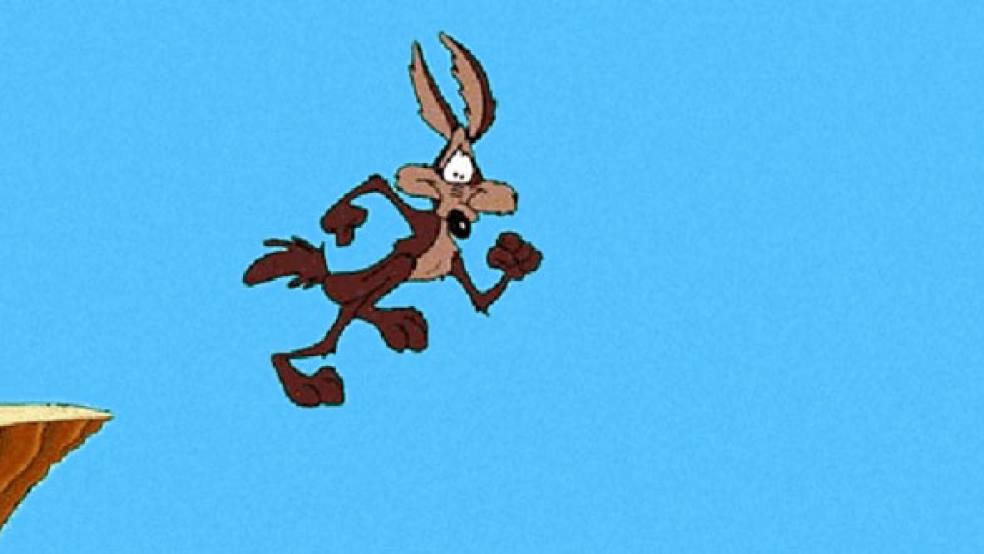You’d better buckle up. America is heading for a “Wile E. Coyote moment” – you know, when the “super genius” races off a cliff and for a fleeting, optimism-inspiring instant defies gravity before plunging onto the rocks below.

That’s the scenario laid out by Bank of America Merrill Lynch economists in a note to clients on Friday. Despite rising consumer confidence – reflected in today’s better-than-expected retail sales report – and pockets of optimism that a deal can be reached to avoid the year-end fiscal cliff, the Bank of America team paints a decidedly bleaker picture.
The Bank of America economists note that the prospects of lawmakers forging a broad deal during the lame duck session are dim – and that the chatter that we could go over the cliff, if only briefly, without serious consequences could be dangerous for investors and the economy.
The “consumer confidence could dry up quickly” if companies decide to postpone hiring as the attention turns to the fiscal cliff and the full scope of the quagmire in Washington becomes more apparent. “We continue to see only limited scope for some sort of action during the lame duck session of Congress that would avoid most of the cliff — especially if the election largely returns the status quo that created it,” B of A economist Michael Hanson wrote.
House Speaker John Boehner had said earlier this month in an interview with Politico that forging a broad deal during the lame duck session of Congress would be difficult – and that it may be inappropriate to have lawmakers who have been voted out of office deciding such weighty matters. “Eh, probably not the appropriate way to handle the lame duck,” Boehner said, dimming hopes that Congress would avoid the year-end cliff.
If lawmakers share that sentiment – or feel that the potential harm caused by going over the cliff has been mitigated by September’s strong jobs report, or paint relatively rosy pictures of what might happen once we’ve gone over the cliff – the prospects for action before the end of the year would be diminished – with unpleasant consequences for investors and the economy.
“If politicians believe going over the cliff has no real consequences, then they will have little incentive to negotiate as the cliff approaches,” Ethan Harris wrote. “Moreover, if the laws of gravity are suspended for weeks or months, why not keep debating after going over the cliff? In our view the end game – the ultimate game of brinkmanship – is a plunge in confidence and markets, and significant damage to the economy.”
It wouldn’t take much to wipe out any labor-market gains we’ve seen recently, Hanson writes. “Only about a 3.5 percent reduction in hiring across all private employers would be needed to drop the payroll number to zero. This arguably is a small response to the big risks posed by the cliff — but if it were to occur, we would not be surprised to see consumer confidence fade shortly thereafter.”
What’s more, the election may only muddy things up more, especially if it results, as seems likely, in a continuation of divided government. “While such an outcome may ultimately yield a compromise at some point, in our view the same group that created the cliff will find it very difficult to benignly resolve it before January 1,” the authors wrote. “More disconcerting, if either side views a victory as a call from voters to push forward with their own partisan agenda on budgetary issues, the chances of a lame duck compromise may go down rather than up: why bargain away part of your post-election policy goals in December if you are in a stronger position after the inauguration in late January?”
In other words, you might want to start calling Acme.





